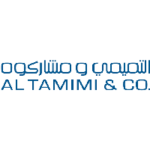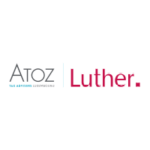-
Is the system of law in your jurisdiction based on civil law, common law or something else?
The system of law in Italian jurisdiction is based on civil law.
-
What are the different types of vehicle / legal forms through which people carry on business in your jurisdiction?
Such types of vehicle / legal form are the following:
- Sole proprietorship (i.e. ditta/impresa individuale).
- Partnerships (i.e. società di persone).
- Corporations (i.e. società di capitali).
-
Can non-domestic entities carry on business directly in your jurisdiction, i.e., without having to incorporate or register an entity?
- The non-domestic entity with registered office in one of EU Countries can carry on business in Italy through a representative office, or a warehouse. In the event such non-domestic entity intends to establish a permanent business organization (i.e. stabile organizzazione) in Italy, it shall establish a branch or a local unit and, in such case, the legal liability is charged on the non-domestic entity and the business of the branch or the local unit is considered in Italy for tax purposes.
- The non-domestic entity with registered office outside EU can carry on business in Italy provided that, in addition to requirements of letter a) above, its native Country of such applies mutually to Italian entities, also in accordance to international agreement(s), the same treatment (i.e. condizione di reciprocità).
-
Are there are any capital requirements to consider when establishing different entity types?
The capital requirements set forth by Italian laws are the following:
- In case of sole proprietorship: none, since the individual is liable with all its asset.
- In case of partnerships: none, since each partner is liable with all its asset.
- In case of corporations: Euro 10,000 for limited liability companies (i.e. società a responsabilità limitata); Euro 1,000 for the simplified limited liability companies (i.e. società a responsabilità limitata semplificata); Euro 50,000 for shares companies (i.e. società per azioni).
-
How are the different types of vehicle established in your jurisdiction? And which is the most common entity / branch for investors to utilise?
- Sole proprietorship is established by obtaining VAT number from Italian tax Authority and registration in the Companies Register of the competent Chamber of Commerce.
- Partnerships are established by public deed or private deed authenticated by a Notary.
- Corporations are established by public deed.
The most common entity for investors is the limited liability company (i.e. società a responsabilità limitata).
-
How is the entity operated and managed, i.e., directors, officers or others? And how do they make decisions?
- Sole proprietorship operates and is managed by the individual.
- Partnerships operates and are managed by each partner, unless otherwise provided. Different provisions about management shall be in written and registered in the competent Chamber of Commerce in order for them to be enforced against third parties.
- Corporations operate and are managed by, alternatively, a board of directors or a sole director or one or more directors, jointly or severally, depending on relative provisions of the Company’s by-laws. Italian law provides for minimum quorum for the validity of relative meeting(s) and decision(s). More precisely, for the meeting(s) validity is required the majority of directors in charge and for the decision(s) validity is required the absolute majority of those present. The company by-laws can provide for different The board of director decides through meeting(s) and sole director decides through decision(s). The directors can be executive or non-executive.
-
Are there general requirements or restrictions relating to the appointment of (a) authorised representatives / directors or (b) shareholders, such as a requirement for a certain number, or local residency or nationality?
- The directors shall have the following requirements: honorability, independence and professionalism. The Company by-laws can require a minimum and a maximum number of directors, as well as other requirements.
- The subject with residential address outside EU countries can be Italian company’s shareholder provided that international agreement between such shareholder’s country and Italy exists and it states for the same treatment (i.e. condizione di reciprocità).
-
Apart from the creation of an entity or establishment, what other possibilities are there for expanding business operations in your jurisdiction? Can one work with trade /commercial agents, resellers and are there any specific rules to be observed?
In order to expand business agents and resellers can be used. More precisely:
- With reference to commercial agents, Italian law provides for general, ethic, professional and administrative requirements.
- General requirements are the following: to be both at least 18 years old and citizen of Italy or of other EU country.
- Ethic requirements are the following: not having been convicted by a final judgment, of the following crimes: crimes against the public administration, the administration of justice, public faith, public economy, industry and commerce, or of the crime of voluntary manslaughter, theft, robbery, extortion, fraud, embezzlement, handling stolen goods, and any other nonnegligent crime for which the law prescribes a sentence of imprisonment of not less than, in the minimum, two years and, in the maximum, five years unless criminal rehabilitation has taken place. Rehabilitation may be applied for after five years of having served the sentence, after ten years if a repeat offender; not being subjected to preventive measures against mafia delinquency.
- Professional requirements are the following: educational background consisting of have attended commercially-oriented high schools or hold a bachelor’s degree in business or law. In addition, two years of professional experience within the past five years are needed in certain areas: sales operator, employee with management or sales organization duties, legal representative of a company.
- Administrative requirements: to open a VAT number (i.e. partita IVA) and submit relative application to the competent Chamber of Commerce. In addition to the above, the agent shall send electronically the so called S.C.I.A. (i.e. Segnalazione Certificata di Inizio Attività) to the competent Company Register prior starting the activity.
- With reference to resellers, the requirements depend on the type/form of vehicle (e.g. sole proprietorship, partnership, corporation) used by reseller to carry out the activity and the sector of products.
- With reference to commercial agents, Italian law provides for general, ethic, professional and administrative requirements.
-
Are there any corporate governance codes or equivalent for privately owned companies or groups of companies? If so, please provide a summary of the main provisions and how they apply.
The rules of governance and operation of unlisted limited liability companies in Italy are provided in the Civil Code and may be implemented into the company’s By Laws. Further corporate governance rules can be incorporated in separate Shareholders’ Agreements, if any. Also an Internal Company Rules can be implemented by the company in order to be addressed to all persons involved in the operational management of the, i.e. all members of the Board of Directors, the General Manager as well as all any appointed Attorney.
-
What are the options available when looking to provide the entity with working capital? i.e., capital injection, loans etc.
In Italy, there are several avenues for providing working capital to an entity:
- Shareholders have the option to extend loans or inject capital into the company, with the potential for later relinquishing the return on these funds.
- Capital infusion by investors allows for an increase in capital, granting them ownership stakes in return.
- Utilization of capital reserves, where permissible under relevant regulations, is another option.
- Entities can pursue debt financing, obtaining funds from banks, financial institutions, or alternative lenders through various means such as term loans, lines of credit, or factoring arrangements.
- Funding opportunities abound, with the Italian government, European Union, and national/regional regulations offering grants, subsidies, and low-interest loans to foster business expansion and development.
-
What are the processes for returning proceeds from entities? i.e., dividends, returns of capital, loans etc.
1. Dividends:
- Dividends serve as a common method for companies to distribute value to shareholders, either in cash or additional shares.
- Compliance with the company’s ByLaws is essential, as they often dictate the distribution process to safeguard a portion of profits as a Legal Reserve.
- The process typically involves the board proposing dividend distribution at the annual general meeting, followed by shareholder approval (with a portion reserved for the legal reserve).
- Once approved, a dividend declaration specifying individual shareholder amounts is issued, with payments usually made via electronic transfer.
2. Free share capital increase and allocation of new shares to shareholders:
- Companies may issue new shares, mirroring existing ones, distributed at no cost to shareholders proportional to their current holdings.
- This process generally entails a corporate capital increase funded from existing disposable reserves, in accordance with legal provisions.
- Shareholders may choose to retain or sell the newly acquired shares.
3. Share Buybacks:
- Share buybacks involve companies repurchasing their own shares, governed by the Civil Code to prevent misuse.
- Shareholder approval is necessary for the buyback, ensuring compliance with legal constraints and financing from distributable profits and available reserves.
-
Are specific voting requirements / percentages required for specific decisions?
The majority principle applies to the corporations. Italian commercial law provides for two different types of ‘quorum’:
- he first, called constitutive, indicates the minimum number of shareholders that must be present for the meeting to be said to be duly constituted;
- the second, called deliberative, represents the number of votes necessary to pass a resolution.
ByLaws may provide higher majority except for the approval of the financial statement and for the revocation of the company offices.
- Ordinary shareholders’ meeting of SPAs:
- Constitutive quorum:
- first convocation: presence of at least half of the share capital;
- second convocation: not expressly provided for, but it is derived from the deliberative quorum provided for the resolution to be passed, whatever part of the capital is represented.
- Deliberative quorum
- first convocation: favorable vote of the absolute majority of those present, unless the statutes require a higher majority;
- second convocation: majority of the capital represented at the meeting.
- Constitutive quorum:
- Extraordinary shareholders’ meeting of SPAs:
- constitutive quorum: presence of at least one third of the share capital;
- deliberative quorum: favorable vote of the two thirds of the share capital represented at the meeting.
- Ordinary and extraordinary shareholders’ meeting of SRLs:
-
- constitutive quorum: presence of at least half of the share capital;
- deliberative quorum: favorable vote of the half of the share capital represented at the meeting.
-
Specific quorum are requested for both SPAs and SRLs in order to resolve on particular items (e.g. modification of the Bylaws or a substantial change in the corporate purpose, appointment of the liquidators and revocation of the state of liquidation waiver and settlement of liability, amendment of the particular rights granted to shareholders, heterogeneous transformation, introduction and abolition of arbitration clauses requiring two-thirds of the share capital).
-
Are shareholders authorised to issue binding instructions to the management? Are these rules the same for all entities? What are the consequences and limitations?
In SPAs the management of a company is responsible for running the day-to-day operations of the company and the shareholders do not have the authority to issue binding instructions to the management of a company. Shareholders have certain rights, such as:
- voting on important matters like the election of the board of directors or approving major corporate decisions,
- accessing the company’s books and
- evaluating the work of the management.
In S.r.l.s the shareholders can be appointed as directors of the company and thus directly manage its activities, while the shareholders who do not have management powers have rights to control their actions as managing directors.
Particular attention must be paid to the possible consequences of direct shareholder intervention in management matters, such as potential conflicts of interest.
-
What are the core employment law protection rules in your country (e.g., discrimination, minimum wage, dismissal etc.)?
Under Italian law, discriminations which are based on employees’ political views, religious beliefs, race, nationality, citizenship, language, gender, disability status, age, sexual orientation, personal opinions, marriage, maternity, affiliation to the trade unions and/or participation in a strike are prohibited.
Therefore, where the dismissal is grounded upon any of the above reasons, it is considered null and void.
Furthermore, dismissals which are based on retaliation reasons against an employee who had been harassed and then has reported the harassment having taken place, are also considered null and void.
As far as the minimum wage is concerned, the constitutional principle (Article 36 of the Italian Constitution) according to which the worker has the right to receive a remuneration that is proportionate to the quantity and quality of their work and in any case sufficient to ensure a free and dignified existence for them and their family is observed.
This provision is generally fulfilled by respecting the minimum wage set out in the National Collective Labour Agreements (CCNL) signed by the most representative trade unions.
-
On what basis can an employee be dismissed in your country, what process must be followed and what are the associated costs? Does this differ for collective dismissals and if so, how?
Under Italian law, dismissals
(i) must be notified in writing, and
(ii) require the employer to provide the reasons for the termination.
The reason for the termination may be linked to a “justified objective reason” (e.g removal of a function within the company) or to a “just cause/justified subjective reason” (e.g. a serious breach by the employee of certain obligations).
The latter hypothesis is considered a disciplinary dismissal and must be served following a specific procedure:
- the employer must promptly provide the employee with a written warning letter, specifying the misconduct;
- within the subsequent five days (or a longer term that may be set forth by the applicable CCNL), the employee is entitled to submit the justifications hereof, either in writing or orally (with the help of the trade unions); and
- at the expiry of the relevant term, if no justification has been provided by the employee or, alternatively, upon receipt of the employee’s justification, if submitted, the employer is entitled to serve the dismissal. Dismissals for just cause do not entitle the employee to the payment of the notice period.
If the dismissal is deemed null and void by the Court (e.g. if the dismissal relies on discriminatory reasons or if it is orally served), employees are entitled to be reinstated, as well as to receive an indemnity payment (of a minimum of five months’ salary up to the unworked period).
Otherwise, when a dismissal is found to be unfair (and not null), consequences may vary depending on the employee’s date of hiring, the employer’s breach and the size of its business, and so on, in particular as follow:
- individual dismissals of employees (not executive levels) hired before 7 March 2015:
- reinstatement and payment of an indemnity (not exceeding 12 months of total compensation) when the employee’s misconduct is proven not to have occurred or should have entailed a disciplinary sanction other than the employee’s dismissal as in accordance with the applicable CCNL;
- payment of an indemnity in the range of 12 to 24 months of total compensation, whenever the dismissal is deemed unlawful;
- payment of an indemnity in the range of 6 to 12 months of total compensation, if the employer has breached rules governing the formal procedure related to individual dismissals;
- payment of an indemnity in the range of two-and-a-half to six months of total compensation (to be increased up to 10 or 14 months for employees having accrued a certain seniority level) whenever the employer has up to 60 employees throughout Italy and has up to 15 employees at each production unit or within each municipality, regardless of the employer’s breach.
- individual dismissals of employees hired after 7 March 2015:
- reinstatement and payment of an indemnity not exceeding 12 months of total compensation whenever it is directly demonstrated that the dismissal was based on misconduct that did not, in fact, occur;
- payment of an indemnity in the range of 6 to 36 months of total compensation, when the dismissal is deemed unlawful;
- payment of an indemnity of (depending on the seriousness of the employer’s breach) 3 to 6 months of total compensation when the employer has less than 15 employees, regardless of the employer’s breach.
For individual dismissals of executive-status employees, the applicable CCNL establishes – in case of unfair termination – the payment of the ‘additional indemnity’ which shall be based on the executive’s seniority.
A specific procedure, named the ‘collective dismissal procedure’, applies whenever employers with more than 15 employees – owing to reduction, transformation or shutdown of activities – intend to dismiss, within 120 days, at least five employees employed at the same production unit or at different production units within the same province.
The main steps of the procedure are the following:
- the employer must notify in advance the trade unions;
- the relevant notice, a copy of which is to be sent to the Labour Office of territorial competence, must include details of, among other things, the reasons that led to the redundancy, the number of both the redundant employees and the other effective employees of the employer, as well as the positions covered by them, the technical, organisational and production-related grounds owing to which no organisational measures other than the collective dismissal may be adopted, etc.;
- upon request by the works councils or trade unions, a meeting between the latter and the employer must be scheduled;
- if no agreement is reached over said meeting, an additional meeting before the competent Labour Office must be scheduled;
- after the additional meeting, even if no agreement is reached, the employer is allowed to dismiss the employees (in the subsequent 120 days).
The maximum duration of the collective dismissal procedure is 75 days (to be decreased by half whenever the collective dismissal procedure concerns less than 10 employees). This procedure also applies to executive-status employees.
In case of unfair collective dismissals, the consequences are:
- reinstatement and payment of an indemnity of up to 12 months of total compensation whenever selection criteria (statutory ones or those under the agreement reached with the unions within the collective dismissal procedure) are breached (this only applies to employees hired before 7 March 2015);
- payment of an indemnity in the range of 12 to 24 months of total compensation in the case of a breach of the statutory procedure that is to be mandatorily complied with when serving collective dismissals (for employees hired before 7 March 2015);
- payment of an indemnity in the range of 6 to 36 months of total compensation in the case of a breach of either the selection criteria or the statutory procedure (for employees hired after 7 March 2015);
- payment of a specific additional indemnity against unfair collective dismissals established by the applicable CBA, if any, or, alternatively, payment of an indemnity in the range of 12 to 24 months of total compensation if either the collective dismissal procedure or the selection criteria are breached (as far as executive-status employees are concerned).
Dismissals, whether individual or collective, are always subject to a specific, one-off contribution to be paid to the National Social Security Institute (INPS) whose sum is calculated according to the worker’s seniority (only up to a maximum of 36 months of seniority). This is an additional social contribution, aimed at financing the Social Insurance against Loss of Employment (NASPI), payable by the company in the event of termination of employment. For the year 2024, the maximum amount relative to a three-year seniority is Euro 1922.28 (640.76 for each year of seniority).
-
Does your jurisdiction have a system of employee representation / participation (e.g., works councils, co-determined supervisory boards, trade unions etc.)? Are there entities which are exempt from the corresponding regulations?
The existence of employee representative bodies in the workplace is a consequence of the freedom to perform trade union activities, which is granted by the Italian Constitution. According to the Italian law (in particular, Article 39 of the Italian Constitution), trade union activity is free and protected. As a consequence, there are various trade unions in business sectors which represent employees in the workplace.
Trade unions play an important role in the employment relationship through collective bargaining agreements, which provide the “minimum standard” economic and legal protections for employees, from which employers cannot derogate.
An agreement may be qualified as a collective bargaining agreement upon the condition that at least one party is a trade union (on a national, local or company level).
Collective bargaining agreements can be organized at the following levels:
- confederation level;
- national level;
- local level (which includes agreements executed at company level).
Particular rights are granted to a qualified employee representative body formed in accordance with the Italian law (Article 19 of Law 300/1970): the so-called rappresentanza sindacale aziendale (RSA).
Starting from 1993, the rights granted by law to RSAs have also been granted to another kind of employee representative body: the so-called rappresentanza sindacale unitaria (RSU).
Unlike the RSA, which is the representative body of one specific trade union, the RSU is a representative body whose members are elected to represent all trade unions that have participated in the relevant election. The number of members depends on the size of the undertaking.
The conditions required by the law for the creation of an RSA and an RSU are different. Therefore, it is possible to have an RSA that represents certain trade unions and an RSU that represents other trade unions having the same employer.
RSAs and RSUs can only be created with reference to employers that employ more than 15 employees (or five employees in the case of an employer operating in the field of agriculture).
Italian law grants certain specific rights to RSAs and RSUs, including:
- right of assembly;
- right of referendum;
- limitations on the transfer of an RSA or RSU member;
- trade union leave;
- right to publish communication on a bulletin board on the employer’s premises.
-
Is there a system governing anti-bribery or anti-corruption or similar? Does this system extend to nondomestic constellations, i.e., have extraterritorial reach?
Italy has a system governing anti-bribery and anti-corruption that distinguishes corruption within the public sector and corruption involving private individuals, as well as the responsibility of legal entities regarding anti-corruption matters.
Bribery offenses relating to individuals are provided for in the Criminal Code (Articles 318 – 322), which address the unlawful agreement between a ‘public official’ or a ‘person in charge of a public service’ and the briber/bribee. Additionally, bribery offenses involving private corporate officers are covered by the Civil Code (Articles 2635 and 2635-bis).
Bribery offenses relating to legal entities are provided by the Legislative Decree no. 231/2001 which introduced the regime of so called “administrative responsibility of legal entities for crimes committed in their interest or to their advantage“.
Many Italian companies have adopted anti-corruption compliance programs and “231 Models” within their corporate structures, comprising policies, procedures, and internal controls to prevent, detect, and address corruption or misconduct. The extraterritorial application of these measures varies depending on individual company policies, but it is common for companies to extend anti-corruption policies to international operations and business partners to mitigate the risks associated with illicit activities.
-
What, if any, are the laws relating to economic crime? If such laws exist, is there an obligation to report economic crimes to the relevant authorities?
Economic crimes are regulated by the Italian Criminal Code (Articles 499 to 519) and also by Legislative Decree 231/2001.
In general, there is not a general duty of individual and companies to report economic crimes to the competent authorities.
-
How is money laundering and terrorist financing regulated in your jurisdiction?
The main legislative provisions are contained in articles 648-bis and 648-ter1 (self-money laundering) and 270-bis and 270-quinquies1 (terrorist financing) of the Criminal Code; and Legislative Decree 231/2007, which requires financial institutions, businesses, and other entities to implement anti-money laundering (AML) measures, such as customer due diligence (CDD), reporting suspicious transactions, and record-keeping.
Additionally, Money laundering and terrorist financing are criminal offenses under the Legislative Decree 231/2001.
-
Are there rules regulating compliance in the supply chain (for example comparable to the UK Modern Slavery Act, the Dutch wet kinderarbeid, the French loi de vigilance)?
While Italy does not have a specific legal framework regulating compliance in the supply chain, Legislative Decree 231/2001 establishes the liability of entities for the commission of various crimes, including human rights violations within business contexts, such as forced or child labor, workplace safety violations, human trafficking, and other crimes against persons.
-
Please describe the requirements to prepare, audit, approve and disclose annual accounts / annual financial statements in your jurisdiction.
The Italian companies must prepare annual financial statements in accordance with accounting standards. These statements include the balance sheet, income statement, cash flow statement, and notes. They must be audited by a Statutory Auditor or registered audit firm if certain criteria are met, such as exceeding certain size thresholds. After preparation and auditing, the financial statements are submitted to the shareholders’ meeting for approval. Once approved, they must be filed with the Companies Register and published in the Official Gazette or other designated publication channels. Compliance with these requirements ensures transparency and accountability in financial reporting for Italian companies.
-
Please detail any corporate / company secretarial annual compliance requirements?
Annual compliance requirements for companies in Italy include filing annual financial statements, holding shareholders’ meetings to approve financial statements and appoint directors, preparing and disclosing corporate governance reports (if applicable), fulfilling tax obligations, maintaining statutory registers and records, making regulatory filings, and ensuring compliance with employment laws. Società di Capitali have a yearly duty to file their annual financial statements with the Company Register.
-
Is there a requirement for annual meetings of shareholders, or other stakeholders, to be held? If so, what matters need to be considered and approved at the annual shareholder meeting?
The shareholders’ meeting must be convened at least once a year for the approval of the annual financial statements. This should occur within the timeframe specified by the bylaws and the Civil Code, and in any case, no later than one hundred and twenty days from the end of the financial year. However, this deadline may be extended to one hundred and eighty days if specific circumstances require it and if permitted by the bylaws.
-
Are there any reporting / notification / disclosure requirements on beneficial ownership / ultimate beneficial owners (UBO) of entities? If yes, please briefly describe these requirements.
Legislative Decree No. 231/2007 introduces the requirement to appoint and verify the beneficial owner for specific entity categories such as banks, lawyers, tax consultants, and real estate professionals. Additionally, a dedicated section of the Companies Register, known as the UBO Register, has been established to facilitate compliance with due diligence obligations by providing necessary information.
-
What main taxes are businesses subject to in your jurisdiction, and on what are they levied (usually profits), and at what rate?
The taxation regime for businesses in Italy encompasses a multifaceted framework comprising of a Corporate Income Tax (IRES) and a Regional Production Tax (IRAP). Understanding the particulars of these taxes, including their bases and rates, is indispensable for businesses seeking to navigate the Italian fiscal landscape effectively.
Corporate Income Tax (IRES):
IRES is levied on net corporate profits and the standard rate is 24%. However, certain adjustments are made to this net income figure in accordance with specific tax rules and regulations. These adjustments are necessary to ensure compliance with the intricacies of the tax code and to accurately reflect the taxable income of businesses. Common adjustments include deductions for certain expenses, allowances for depreciation or amortization of assets, and other tax-related provisions mandated by law. By making these adjustments, the taxable income subject to IRES is refined to align more closely with the economic reality of a business operations while ensuring adherence to legal requirements.
Regional Production Tax (IRAP):
In addition to the IRES, businesses in Italy are subject to the IRAP, a regional tax imposed on profits. With a standard rate of 3.9%, the IRAP contributes to regional revenues but also varies across different entities and regions. Regional authorities possess discretionary powers to marginally adjust IRAP rates, reflecting localized fiscal considerations.
-
Are there any particular incentive regimes that make your jurisdiction attractive to businesses from a tax perspective (e.g. tax holidays, incentive regimes, employee schemes, or other?)
The scenario surrounding corporate tax credits and incentives in Italy has seen noteworthy developments following the latest amendments to the tax regime in February 2024. These changes are essential steps in advancing Italy’s industrial policy objectives, enhancing operational efficiency for companies, and addressing global imperatives such as the green and digital transition. These changes include the following.
- Introduction of a Foreign Tax Credit, allows companies to offset foreign-source income taxes against their Italian Corporate Income Tax (IRES) liability.
- Implementation of a reshoring exemption, which encourages the repatriation of business activities by offering a 50% exemption for Corporate Income Tax (CIT) and Regional tax on repatriated income for up to five tax periods. To prevent misuse, activities conducted in Italy within 24 months before reshoring are ineligible. A monitoring period of five tax periods (ten for large companies) follows reshoring. If activities are partially moved out of Italy during this period, the Italian Tax Authority applies a recapture mechanism for unpaid taxes and related interests.
- Provision of a tax credit for investments in new capital assets to support enterprises across sectors, through benefits for ‘tangible and intangible assets 4.0’ aligned with technological innovation.
For Tangible Assets ‘4.0’:
- Tax credit for investments in tangible ‘assets 4.0’ varying based on investment period and cost.
- If investments occur between 1 January 2023, and 31 December 2025, or by 30 June, 2026, provided that by 31 December 2025 a purchasing order is accepted by the seller and the buyer has paid an installment of at least 20% of the purchasing cost, the tax credit is determined as follows:
- 20% of the cost for investments up to EUR 2.5 million.
- 10% of the cost for investments between EUR 2.5 million and EUR 10 million.
- 5% of the cost for investments between EUR 10 million and EUR 20 million.
This threshold applies for each fiscal year from 2023 through to 2025.
For Intangible Assets ‘4.0’:
- Tax credit for investments in intangible assets, including cloud computing services, with rates varying by investment year.
- In FY 2023, the tax credit is 20% of the cost, with an annual maximum of EUR 1 million. Subsequently, the rate reduces to 15% for investments in FY 2024 and further decreases to 10% for investments in FY 2025.
- Attention to intangible assets through tax credits available for investments in research and development (R&D) and technological innovation with a special focus on businesses investing in technological and digital innovation activities ‘4.0’ and projects for ecological transition are eligible for a tax credit.
- Until FY 2023, this is 10% (6% in FY 2020) of eligible costs, capped at EUR 2 million annually (EUR 1.5 million in FY 2020). The rate increases to 15% (10% in FY 2020) for activities targeting technological innovation for ecological transition or digital innovation compliant with the ‘4.0’ model, with the same annual limit.
- However, as per revisions in the 2022 Budget Law, for the tax periods 2024 and 2025, the credit rate reduces to 5%, while the annual maximum limit of EUR 2 million remains unaffected.
Moreover, special considerations are made for enterprises operating in southern Italy, offering tax credits for investments in the Southern Italy Special Economic Zone (SEZ) and advertising campaigns.
Italy’s tax incentive landscape is further enriched by provisions for patent box regimes, offering tax exemptions for income derived from qualifying intangible assets. The Old Patent Box regime, applicable until 2021, focused on profit-based incentives, while the New Patent Box regime, effective from 2021, adopts a cost-based approach to incentivize research and development activities.
- Italian resident companies and Permanent Establishments (PEs) of non-resident entities, as well as those outsourcing R&D activities to universities or similar institutions, can qualify for tax recognition equivalent to 110% of relevant expenditures for both IRES and IRAP, concerning copyrighted software, patents, designs, and models.
- R&D costs incurred with related parties are ineligible.
- The election for the new Patent Box procedure spans five fiscal years, is irrevocable, and may be renewed.
This transition underscores Italy’s commitment to fostering innovation and competitiveness among businesses. With these diverse incentives and tax credits, Italy endeavors to enhance its appeal for investment, and to catalyze economic growth and strengthen its position in the global business arena.
-
Are there any impediments / tax charges that typically apply to the inflow or outflow of capital to and from your jurisdiction (e.g., withholding taxes, exchange controls, capital controls, etc.)?
Italy encourages the inflow of investments in its territory by offering residents of other EU Member States the same investment regulations as those applicable to Italian residents. Investments made by non-EU residents may be subject to certain restrictions, especially in the absence of reciprocity with Italian regulations.
27.a. Inflow of capital
Finance Investments
Typically, the inflow of capital from foreign countries does not face any specific tax charge. Foreign entities can finance investments through debt financing, equity financing or a combination of both. It is worth noting that equity contributions as a method of financing increase a shareholder’s cost base.
Business inflow investments
Italy has implemented the ATAD 1 Directive which enforces the disciplines of exit tax and entry tax symmetrically. This means that if the State of Exit has applied an exit tax on capital gains arising at the time of the transfer, Italy must apply the entry tax on the same values, thus ensuring the absence of double taxation.
Additionally, starting in 2024, Italy has introduced a tax incentive known as the “reshoring tax incentive”. This regime provides for a 50% reduction in corporate income tax (IRES) and IRAP tax upon the transfer of the business from non-EU countries to Italy and the retention of the business in Italy for six tax periods, or ten in the case of large enterprises.
27.b. Outflow of capital
Outflow interest
A standard withholding tax (WHT) rate of 26% applies to earnings on securities, such as bonds, loans, etc., paid by Italian resident entities to investors who are not Italian residents and do not have a permanent establishment in Italy. However, under specific circumstances such as Double Taxation Treaties (DTTs), EU Directives, and other domestic tax regimes, the standard WHT rate may be reduced or even nullified. It is important to note that the reduction applies only to the beneficial owner of the income. Domestic WHT on interest earned from government bonds is set at 12.5%.
Payments to foreign investment funds and institutional investors
An exemption provision from WTHs is allowed for interest that is paid by resident enterprises to non-resident institutional investors as long as:
- the loan qualifies as medium to long-term debt granted in compliance with the Italian Bank Code; and
- the lender is: (i) a financial institution established in an EU Member State; or (ii) an insurance company established and authorised under the law of an EU Member State; or (iii) a foreign institutional investor, whether subject to tax, set up in a country included in the Italian whitelist and subject to regulatory supervision in its country of establishment.
Royalties
A standard withholding tax (WHT) rate of 30% applies on royalties paid by Italian resident entities to non-resident individuals and companies. This WHT may be reduced or exempted under a Double Taxation Treaty (DTT) in force between Italy and the country of residence of the recipient of the royalty. Further, if all the requirements provided for by EU Interest-Royalties Directive are met, no WHT is levied on the outbound flow of royalties.
Dividends
Dividends are generally subject to a 26% WHT. For dividends paid from a resident-controlled company to the parent company, no WHT is levied on the outbound flow of dividends if all the requirements provided for by the EU Parent-Subsidiary Directive are met. Otherwise, WHT may be reduced or exempted under the application of the tax treaty (DTTs) in force between Italy and the country of residence of the recipient of the dividend. In this case, the specific DTT regime will be applicable. A specific WHT of 1.20% applies to dividends paid by a subsidiary to the parent company of an EU member state, and is also subject to corporate tax when the distribution does not satisfy the requisites of the EU Parent-Subsidiary Directive.
-
Are there any significant transfer taxes, stamp duties, etc. to be taken into consideration?
Capital gains
When a company disposes of capital assets, it is required to calculate the gains by subtracting the sale price or indemnity received (minus the costs directly associated with the sale or indemnity) from the adjusted tax basis of the asset, which is typically its purchase cost. This difference is included in the company’s taxable income for the fiscal year in which the gains are realized.
If the asset has been held for at least three years (holding period), the company may choose to include the capital gains in the taxable base either in the year in which they are realized or in equal instalments over the current and following tax years. However, the gains cannot be carried beyond the fourth year.
When a company disposes of participations and financial instruments like shares, the “participation exemption” regime may apply. It allows a 95% exemption from corporate tax on capital gains arising from the sale of participations and financial instruments held in resident companies or partnerships. To qualify for this exemption, the following requirements must be met: (i) the participation must have been held for at least 12 months before the sale; (ii) the participation must have been classified among the financial fixed assets in the first balance sheet following its acquisition; and (iii) the participating company must be engaged in an active trade or business.
Non-resident companies that have a permanent establishment (PE) in Italy are taxed on the gains realized on assets related to their business activity in Italy. For non-resident companies without a PE in Italy, the taxation of capital gains can vary depending on the type of property being disposed of.
Stamp tax or similar tax
Financing transactions such as loans may fall within the scope of value-added tax (VAT), although exempted. If not subject to VAT (e.g. because the lender is not a VAT subject), they are subject to registration tax of 3%, unless they are executed by exchange of correspondence, which is one of the means to conclude a legal contract, requiring fewer formalities. If guarantees are provided, additional registration taxes, as well as mortgage and cadastral taxes if real estate is involved, might also be applicable. However, medium- to long-term loans (defined as those exceeding 18 months) granted from banks and other qualified financial institutions may benefit from the application of an optional substitute tax generally levied at a rate of 0.25% of the total amount of the loan requested, instead of the levying of stamp duty, government license tax and registration, and mortgage and cadastral taxes.
-
Are there any public takeover rules?
Yes. the regulatory framework consists of the following rules:
- Law 287/1990 (Competition Law);
- Legislative Decree 58/1998 (Consolidated Finance Law);
- Regulation (EC) 139/2004 (European Regulation on Merger Control);
- Law Decree 185/2008.
-
Is there a merger control regime and is it mandatory / how does it broadly work?
Under the Italian merger control discipline, the undertakings involved are required to notify a concentration to the Italian Competition Authority when:
- The aggregate total turnover in Italy of all the companies involved exceeds EUR 532 million;
and
- The domestic turnover of the target company, branch or merged company exceeds EUR 32 million.
After the notification, the Italian Competition Authority has the power to open an investigation when deeming that the notified merger threatens to hinder the functioning of the competition in the domestic market, by creating or strengthening a dominant position.
Failure to notify may result in fines.
Under the Italian merger control, regime no standstill obligation applies. This said, should the merger be already closed by the time of the decision of the Italian Competition Authority, the latter can impose measures aimed at correcting the effects of the merger.
-
Is there an obligation to negotiate in good faith?
Yes.
The parties involved in a transaction shall act in good faith:
- during the negotiation of the terms of the transaction pursuant to Article 1337 of the Italian Civil Code;
- during the execution and performance of the agreement pursuant to Article 1375 of the Italian Civil Code.
-
What protections do employees benefit from when their employer is being acquired, for example, are there employee and / or employee representatives’ information and consultation or co-determination obligations, and what process must be followed? Do these obligations differ depending on whether an asset or share deal is undertaken?
In the event of a merger, demerger, business transfer, or any other corporate transaction leading to a change in the employing entity, employees must receive notification at least 25 days before the effective date of the change. According to the law, it’s mandatory to inform labor unions and/or local employee representatives about the proposed transaction and engage in discussions with them to address its impact on employees.
It’s important to note that the transaction doesn’t grant the new employer the authority to terminate affected employees. Typically, an agreement is reached between the former employer, new employer, labor unions, and employee representatives to document the outcome of discussions and ensure the correct implementation of the notification process. However, if no specific agreement is reached within the 25-day negotiation period, the transaction may proceed regardless.
Conversely, in a share deal involving a change of control, the above-mentioned notification and negotiation process are not applicable. In such cases, employees can only be dismissed in accordance with standard dismissal regulations. Nonetheless, it’s customary to inform employee representatives about any anticipated change of control.
-
Please detail any foreign direct investment restrictions, controls or requirements? For example, please detail any limitations, notifications and / or approvals required for corporate acquisitions.
Under the Italian foreign investment discipline, set forth in Law Decree No. 21/2012 (Golden Power Discipline), the Italian government has the power to impose conditions, or veto, on investments in Italian companies in strategic sectors, i.e. defense and national security, strategic sectors (energy, transport, financial, communications, healthcare, data processing, AI and Robotics, 5G technology and cloud services), when such investments may be detrimental to the national security or other public interests, such as:
Failure to notify a relevant transaction under the Golden Power Discipline may result in fines up to twice the value of the transaction and, in any event, at least 1% of the cumulative turnover of the parties involved.
-
Does your jurisdiction have any exchange control requirements?
Italy has signed and currently maintains numerous Double Tax Treaties and Tax Information Exchange Agreements with numerous foreign countries, aiming at governing the exchange of information.
-
What are the most common ways to wind up / liquidate / dissolve an entity in your jurisdiction? Please provide a brief explanation of the process.
In Italy, the winding-up process for a company typically follows these steps:
- Assessment of the cause for dissolution, such as the company’s term expiration or capital reduction below legal thresholds. During this period, directors retain management powers to safeguard asset value until liquidators are appointed.
- Appointment of liquidators by the shareholders’ meeting, specifying their number, powers, and liquidation criteria.
- Execution of liquidation tasks by the appointed liquidators until completion.
- Compilation of a Liquidation Report by the liquidators, outlining each shareholder’s entitlement or share of divided assets before finalizing the company’s liquidation.
- Removal of the company from the Commercial Register.
Additional dissolution methods may include:
- Dissolution by shareholder resolution: Shareholders may vote to dissolve the company through a special resolution, requiring a specific majority.
- Merger or acquisition: Dissolution occurs through merger or acquisition, with assets transferred to another entity.
- Judicial liquidation: In cases of insolvency, a court may appoint a trustee to liquidate assets and distribute proceeds to creditors.
Italy: Doing Business In
This country-specific Q&A provides an overview of Doing Business In laws and regulations applicable in Italy.
-
Is the system of law in your jurisdiction based on civil law, common law or something else?
-
What are the different types of vehicle / legal forms through which people carry on business in your jurisdiction?
-
Can non-domestic entities carry on business directly in your jurisdiction, i.e., without having to incorporate or register an entity?
-
Are there are any capital requirements to consider when establishing different entity types?
-
How are the different types of vehicle established in your jurisdiction? And which is the most common entity / branch for investors to utilise?
-
How is the entity operated and managed, i.e., directors, officers or others? And how do they make decisions?
-
Are there general requirements or restrictions relating to the appointment of (a) authorised representatives / directors or (b) shareholders, such as a requirement for a certain number, or local residency or nationality?
-
Apart from the creation of an entity or establishment, what other possibilities are there for expanding business operations in your jurisdiction? Can one work with trade /commercial agents, resellers and are there any specific rules to be observed?
-
Are there any corporate governance codes or equivalent for privately owned companies or groups of companies? If so, please provide a summary of the main provisions and how they apply.
-
What are the options available when looking to provide the entity with working capital? i.e., capital injection, loans etc.
-
What are the processes for returning proceeds from entities? i.e., dividends, returns of capital, loans etc.
-
Are specific voting requirements / percentages required for specific decisions?
-
Are shareholders authorised to issue binding instructions to the management? Are these rules the same for all entities? What are the consequences and limitations?
-
What are the core employment law protection rules in your country (e.g., discrimination, minimum wage, dismissal etc.)?
-
On what basis can an employee be dismissed in your country, what process must be followed and what are the associated costs? Does this differ for collective dismissals and if so, how?
-
Does your jurisdiction have a system of employee representation / participation (e.g., works councils, co-determined supervisory boards, trade unions etc.)? Are there entities which are exempt from the corresponding regulations?
-
Is there a system governing anti-bribery or anti-corruption or similar? Does this system extend to nondomestic constellations, i.e., have extraterritorial reach?
-
What, if any, are the laws relating to economic crime? If such laws exist, is there an obligation to report economic crimes to the relevant authorities?
-
How is money laundering and terrorist financing regulated in your jurisdiction?
-
Are there rules regulating compliance in the supply chain (for example comparable to the UK Modern Slavery Act, the Dutch wet kinderarbeid, the French loi de vigilance)?
-
Please describe the requirements to prepare, audit, approve and disclose annual accounts / annual financial statements in your jurisdiction.
-
Please detail any corporate / company secretarial annual compliance requirements?
-
Is there a requirement for annual meetings of shareholders, or other stakeholders, to be held? If so, what matters need to be considered and approved at the annual shareholder meeting?
-
Are there any reporting / notification / disclosure requirements on beneficial ownership / ultimate beneficial owners (UBO) of entities? If yes, please briefly describe these requirements.
-
What main taxes are businesses subject to in your jurisdiction, and on what are they levied (usually profits), and at what rate?
-
Are there any particular incentive regimes that make your jurisdiction attractive to businesses from a tax perspective (e.g. tax holidays, incentive regimes, employee schemes, or other?)
-
Are there any impediments / tax charges that typically apply to the inflow or outflow of capital to and from your jurisdiction (e.g., withholding taxes, exchange controls, capital controls, etc.)?
-
Are there any significant transfer taxes, stamp duties, etc. to be taken into consideration?
-
Are there any public takeover rules?
-
Is there a merger control regime and is it mandatory / how does it broadly work?
-
Is there an obligation to negotiate in good faith?
-
What protections do employees benefit from when their employer is being acquired, for example, are there employee and / or employee representatives’ information and consultation or co-determination obligations, and what process must be followed? Do these obligations differ depending on whether an asset or share deal is undertaken?
-
Please detail any foreign direct investment restrictions, controls or requirements? For example, please detail any limitations, notifications and / or approvals required for corporate acquisitions.
-
Does your jurisdiction have any exchange control requirements?
-
What are the most common ways to wind up / liquidate / dissolve an entity in your jurisdiction? Please provide a brief explanation of the process.
























